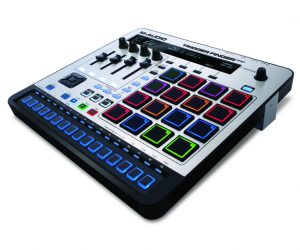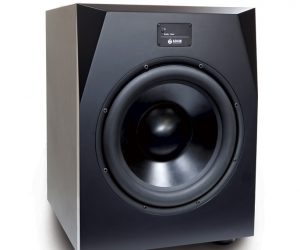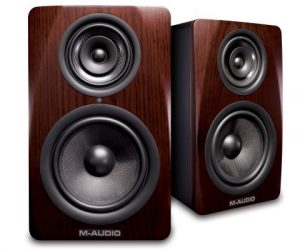
PC AUDIO 108
PC laptops and notebooks can be great for music making, but ensure you make a wise investment!
Column: Martin Walker
More and more musicians are abandoning desktop PCs in favour of more portable devices, both for live use and for a more compact setup at home or in the studio. Sadly though, while buying a desktop PC for audio purposes is a comparatively safe bet nowadays, buying a laptop/notebook is still a bit of a minefield. Modern PC laptops/notebooks can certainly provide more than enough processing power for most musicians, but the crucial measurement that will determine whether or not a particular model is suitable for a musician is DPC (Deferred Procedure Call) Latency.
ANSWERING THE CALL
Windows handles audio and video streams not in real time, but with periodic blocks of data, queued via an ‘interrupt call’. Whenever the next block of data is required to maintain a smooth stream, the appropriate device driver issues one of these DPC calls, which then gets placed by Windows in a queue, to be carried out when it’s finished dealing with whatever it’s currently doing. So far so good. However, as with most queues, calls are dealt with on a first come, first served basis, so if anything ahead of the audio request in the queue takes longer than expected, you’ll run into problems.
The raison d’être of any audio PC is to stream audio smoothly, without any dropouts that result in infuriating audio clicks, pops, and glitches. Any internal computer component whose driver hangs onto the processor for an excessive amount of time can cause these. It’s bad enough when they occur during playback, but if they happen during a recording you can be left with permanent interruptions in your audio that are very difficult to mask.
If you experience glitching audio on any PC you can try systematically disabling likely devices one at a time via Windows Device Manager to see if it cures the problem. Thankfully there are also a couple of free utilities that can help track down the most likely candidates. For a long time, DPC Latency Checker (www.thesycon.de) was the first port of call. It provides a graphic readout of DPC latency in real time — if all results remain in the green zone the machine is able to run audio streams without dropouts, but if any stray into the yellow area your machine might need its audio buffer size (and hence its latency) increased a little. Sadly, if results enter the red zone then you most definitely need to find and disable the culprit device. DPC Latency Checker is still useful if you have a Windows 7, Vista or XP-based PC, but it’s currently not suitable if you use Windows 8. A suitable utility that runs on both Windows 7 and 8 is LatencyMon from Resplendence Software (www.resplendence.com). The Home Edition is free, but there’s also a Pro version for business use. Their readouts are still fairly self-explanatory, and there’s also a mass of further stats on offer if you need to delve deeper into problem areas.
LAPTOP PROS & CONS
Now the fundamental difference between a desktop and laptop/notebook PC is that with the latter, you’re unlikely to be able to replace — and sometimes even disable — the drivers of various internal components that may cripple low latency audio performance. A few settings may be available to tweak, but even one ‘badly behaved’ device driver can bring a system to its knees audio-wise. It could be a cooling fan unexpectedly cutting in to stop your processor overheating, a Wi-Fi device being polled, network adaptors, an internal modem, or even an onboard soundchip. If you can buy a laptop/notebook on the high street, you can try taking in the above utilities on a USB stick and running them before you hand over any cash, but if you’re buying over the internet, your only option is to establish beforehand that if your chosen model isn’t well-behaved with low latency audio, you can return it for a full refund.
Sadly, a lot of people still think that specialist ‘pro audio notebooks/laptops’ are a con, but they can save you a lot of heartache. Laptops supplied by audio PC builders are simply models that have already been thoroughly tested across a wide range of audio hardware and software, and are guaranteed not to present the above problems. You also get informed support about high quality audio performance if and when you need it, rather than a blank look. Audio PC builders may discard many models before finding one that works well down to low audio latencies, while the larger audio suppliers may even have enough clout to ask the original manufacturer to provide a specially tweaked BIOS, offering options mainstream laptop equivalents don’t have. The specialists will charge you a little extra for all their time and effort, but I think it’s well worth this premium to save all the possible hassle.
If you want to go it alone, there are also a few good threads across several music forums where musicians detail specific mainstream laptop models that have been found to work well with audio. Although sometimes manufacturers end up changing one or more internal components and their drivers during a production run, perhaps because a particular part is no longer available, has been superseded, or the original spec gets ‘improved’. In such cases, audio performance may suffer, so no forum recommendation is foolproof. Sometimes even the specialists have to drop a previously good laptop from their range for the same reason.
Time after time I’ve seen musicians post on forums asking ‘Which is the best laptop to buy for audio from the following list?’ Rarely can people provide them with any specific advice, except on the odd occasion when someone has recently taken the gamble and bought that exact model, and therefore been able to test it out for themselves. Generally, model after model is suggested and discarded, before the poster either: buys a pro model and starts making music, gives up, or buys something blind in the hope that it will work well for them. The latter option is often the saddest thing of all because then the questions start. From the hopeful ‘What settings do I need to change to get acceptable performance?’ Through to, ‘Why doesn’t my BIOS have the settings you recommend altering?’ And the despair of, ‘I could never entirely eliminate clicks at any usable buffer size for playing VST instruments’. I’m still a firm supporter of desktop PCs for music, but when it comes to laptops and notebooks, all bets are off unless you stick with the professionals.

















RESPONSES